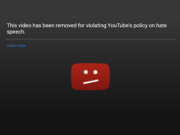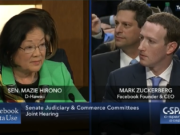Howard Schweber, a Professor of Political Science and Legal Studies at the University of Wisconsin-Madison, flippantly claims that the most imminent threat to our democracy is speech that is, in his opinion, too “loud.” According to a recent blog by Schweber in The Huffington Post, some speakers in our democracy, like some commenters on the internet, simply speak too much, and somebody ought to do something to quiet these speakers before our entire democracy becomes nothing more than a bunch of hotheaded “trolls” yelling at each other.
It appears Schweber’s biggest issue is with a specific brand of speech that has gained popularity in the current presidential election cycle. He makes no attempt to hide his dislike of the Republican nominee, Donald Trump, dubbing him “the Troll King,” and then proceeds to say that we must do something to prevent the type of speech in which his campaign is engaging. Perhaps it is mere coincidence that the type of speech Schweber sees as a threat to democracy is speech he disagrees with, but such coincidences are far too common in arguments for new speech regulations. And this minor detail only points to the much larger issue at hand.
What Schweber is really suggesting is that the best way to encourage “reasoned dialogue” is for the government to limit speech that it views as “inherently louder than others.” Continuing to use internet discussion as his metaphor, he claims that internet speech platforms must regulate speech in order to ensure that everyone’s voice can be heard, and that the flourishing of a healthy democracy is dependent upon the ability of the powers that be to regulate speech so that unsavory speakers do not dominate the conversation.
Now, keep in mind, he says all of this outside of the context of campaign finance regulation. So he’s literally talking about limiting the speech of speakers who start to gain too much attention. If that is not a direct contradiction of the First Amendment, then I don’t know what is. I wonder if Professor Schweber would support removing John Oliver’s clips from YouTube once they reach a pre-determined maximum number of views so that other political comedians can be heard or would defend limiting the number of Beyoncé albums that can be sold so that other artists aren’t drowned out.
Schweber then somehow transitions from complaining about the speech of a single candidate, whose relative “loudness” and significant media presence have had almost nothing to do with expenditures, to complaining about money-in-politics as the real reason for the impending tyrannical downfall of our democracy. In his own words, “The Supreme Court has repeatedly adopted the idiotic assumption that the way to ensure all voices are heard is to have no limits on speaking.”
Indeed, the Court has repeatedly adopted the allegedly radical position that limits on speaking limit speech, articulated most clearly in 1976’s landmark Buckley v. Valeo decision. Citing precedent, the Court wrote, “the concept that government may restrict the speech of some elements of our society in order to enhance the relative voice of others is wholly foreign to the First Amendment, which was designed “to secure ‘the widest possible dissemination of information from diverse and antagonistic sources,’” and “‘to assure unfettered interchange of ideas for the bringing about of political and social changes desired by the people.’”
Contrary to the author’s claim that the Supreme Court equated spending money with speech in Buckley and Citizens United, the Court was actually acknowledging an undeniable truth: restricting the ability to pay for speech serves to limit speech, because money is an essential ingredient in the dissemination of ideas to a mass audience. The Court recognized that limiting the speech of corporations, labor unions, and associations would reduce the total amount of speech in our democracy and deny certain citizens of their right to free political speech.
Professor Schweber seems to have a fixed pie view of political speech. According to his outlook, speech from one speaker must automatically limit the speech of another. In reality, allowing groups to spend money on speech does not mean those groups can silence the speech of others. In fact, that would be much closer to what Schweber himself is proposing. In his view, as long as it is bureaucrats and politicians spending taxpayers’ money to limit speech, democracy benefits. It is unclear why he trusts government to exercise this incredible power responsibly, especially given his past warnings about “the expansion and abuse by our state and national political classes of previously valid legal policies to achieve ends in our increasingly polarized political environment.”
Professor Schweber even goes so far as to say that the “point” of campaign finance regulations is to limit the “volume” of speech. Hint: when advocating for greater government regulation of political speech, stick to corruption and “fairness” as arguments. Americans generally don’t like to hear that you want to limit speech. But, hey, at least the Professor’s speaking honestly.














